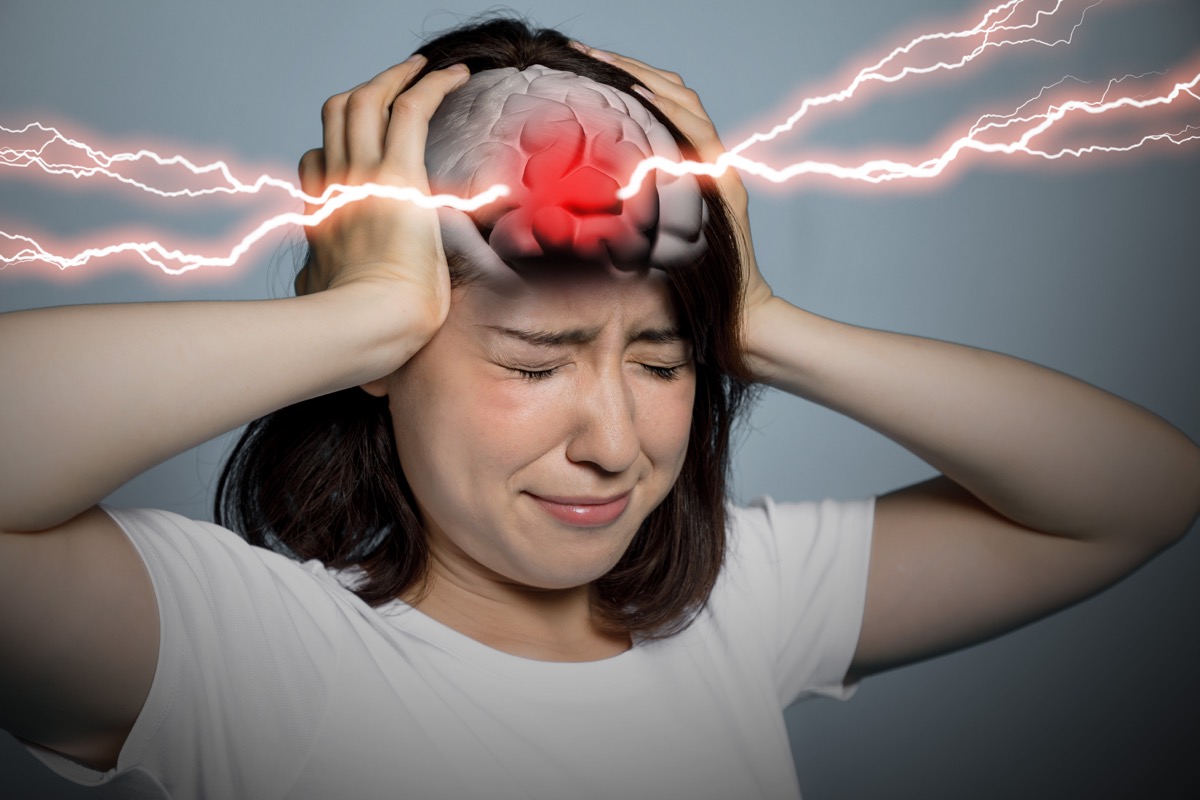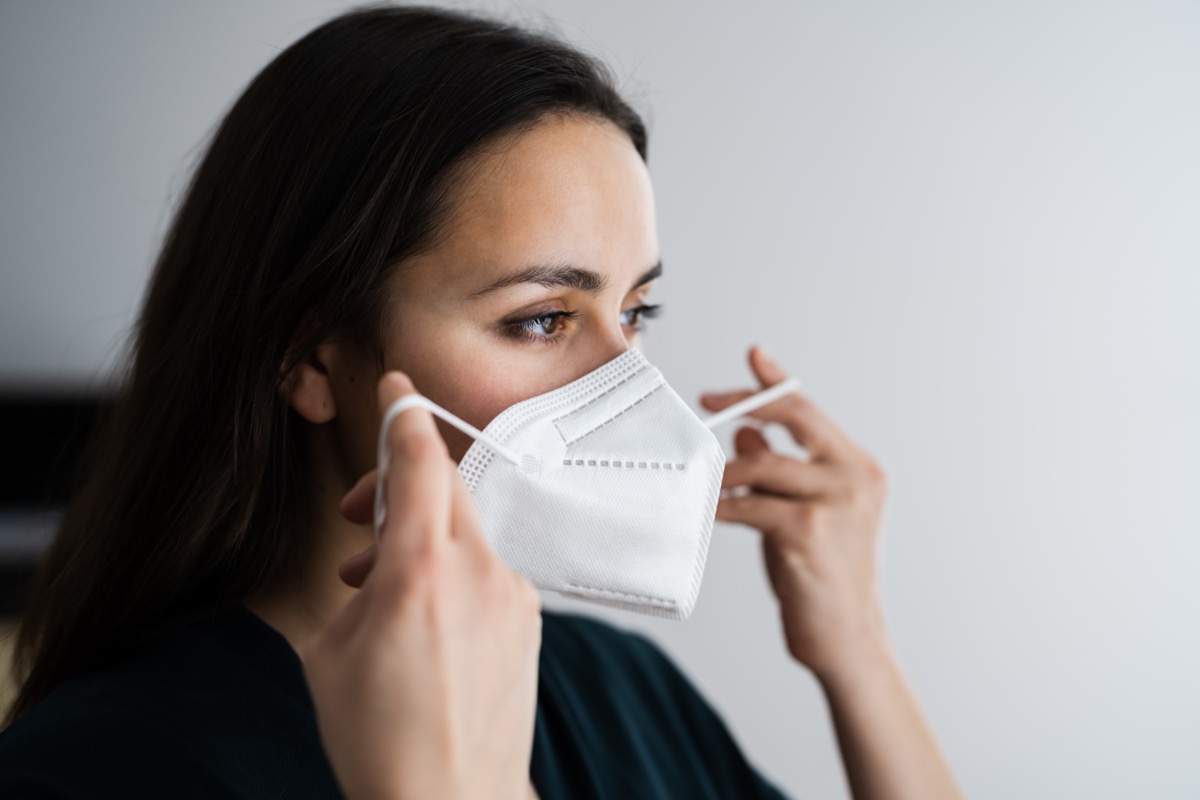Smelling things that aren't there—known as parosmia or phantom smells—could be a sign of serious illness. "This morning I saw two patients with parosmia. One said they could smell fish in place of any other scent, and the other can smell burning when there is no smoke around," says ear, nose and throat surgeon Professor Nirmal Kumar. "Both are healthcare workers, and we think there is increased incidence in young people and also in healthcare workers because of exposure to the [COVID] virus in hospitals. For some people, it is really upsetting them. We are calling it neurotropic virus. What this means is the virus is affecting the nerves in the roof of the nose – it's like a shock to your nervous system, and the nerves aren't functioning." Here are five smells that could be a sign of health issues. Read on—and to ensure your health and the health of others, don't miss these Sure Signs You've Already Had COVID.
While long COVID may result in long-term loss of taste and smell for some, others have reported smelling strange and often unpleasant odors after being infected with the virus. "There are so many viruses that can cause smell loss, not only other coronaviruses, but also influenza viruses and rhinoviruses," says Zara M. Patel, MD, director of endoscopic skull base surgery at the Stanford School of Medicine. "Many of these viruses also will lead to a parosmia and phantosmia, either as part of the initial deficit, or as the nerves try and recover, but make aberrant connections."

Smelling smoke could be a warning sign of seizure. "If the smell of smoke occurs suddenly and continues for less than a few minutes, the site of origin is likely the smell region of the inner temporal lobe of the brain, called the uncus," says neurologist Ronald DeVere, MD. "The source could be an abnormal electrical discharge or "firing" in the brain (a seizure). Potential causes of this abnormality could be a brain tumor, inflammation, stroke, or an injury following head trauma."

Phantom smells could be a sign of a brain tumor, doctors warn. "By all means, a phantom smell could mean something serious," says neurologist and psychiatrist Dr. Alan Hirsch of the Smell & Taste Treatment and Research Foundation in Chicago. "It absolutely needs to be evaluated. It could be a tumor – that's on the top of your list of things to rule out — but it could also be a cyst or some infectious agent housed in the area of the brain where the smell is processed."

Phantom smells are rarely pleasant, according to experts. "It's usually more unpleasant stuff or odors that are hard to describe," says Dr. Hirsch. "People will say it's chemical-like or talk about a burning smell. I think a larger area of the brain is represented by bad smells than good smells. And they also may be easier to 'fire off.'"

What if you can't smell anything at all? It's possible to lose your sense of smell and taste completely—and sometimes permanently—after a head injury. "Smell loss following traumatic brain injury is often overlooked as doctors tend not bother to ask about or test for loss or change in smell — or taste for that matter," says Nathan Zasler, MD. "Many times, people with brain injury first report changes in taste when they lose or notice a change in their ability to smell. Typically, complete loss of smell — or what is called anosmia — will be quite noticeable to a person following a traumatic brain injury and may affect numerous aspects of their life. Unfortunately, there is no good treatment cure for post-traumatic anosmia. Typically, if a person doesn't regain his ability to smell six months after the injury, the loss will likely be permanent."

Follow the public health fundamentals and help end this pandemic, no matter where you live—get vaccinated or boosted ASAP; if you live in an area with low vaccination rates, wear an N95 face mask, don't travel, social distance, avoid large crowds, don't go indoors with people you're not sheltering with (especially in bars), practice good hand hygiene, and to protect your life and the lives of others, don't visit any of these 35 Places You're Most Likely to Catch COVID.
The post If You Smell This Smell, You May Need to See a Doctor appeared first on Eat This Not That.
----------------
By: Ferozan Mast
Title: If You Smell This Smell, You May Need to See a Doctor
Sourced From: www.eatthis.com/news-smell-this-you-may-need-to-see-a-doctor/
Published Date: Sat, 30 Jul 2022 11:01:00 +0000
Read More
Did you miss our previous article...
https://naturesmart.us/fitness/heres-how-to-get-a-toned-belly-in-1-week-trainer-says
 HealthWellnessFitnessBeautyVideosPrivacy PolicyTerms And Conditions
HealthWellnessFitnessBeautyVideosPrivacy PolicyTerms And Conditions
